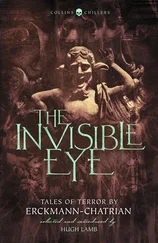“So it is,” said Gamzu. “To the place where a man is summoned his feet carry him. Whether he wishes it or not, his feet carry him there. Many have asked me how the hymns of Rabbi Adiel came into my possession. You too have asked me, if not in so many words, most certainly in your thoughts.”
“Whether I have asked you or not, you have still not told me how it came about.”
“If you wish, I shall tell you.”
“If that is your wish, proceed.”
Said Gamzu: “I came once to a certain village, and my feet would not allow me to go on from there. I said to myself, Nothing could be so patently foolish as to waste time in this wretched place, where the Jews have little knowledge of the Torah and are stricken with poverty. They can scarcely support themselves by their work on the soil and by the fruit which they buy from the Gentiles straight off the tree and sell to the dealers in the city. Do you expect to find books among men like these? In the meantime the Sabbath began. I found a bed at the house of a man who packed dried figs and dates, and went with him to the synagogue, a structure of palm-wood blackened with age. All the congregation assembled. They took off their shoes and kindled the earthenware lamp; they seated themselves and recited the Song of Songs; they stood and recited the Sabbath psalm and read the daily prayer ‘And He is merciful’ as on weekdays. And the prayers for the Sabbath were sung to their own melodies with which none of us is familiar, but which make their appeal to everyone who has a Jewish heart in his breast. So it was with their customs, which were handed down by their fathers, who had received them from their forefathers, as far back as the exiles of Jerusalem who were expelled by Nebuchadnezzar, king of Babylon. When he exiled Israel from Jerusalem, he ordered all the millstones in the land of Israel to be removed and loaded on to the shoulders of the young men. The young men went into exile laden with the millstones, and of them Jeremiah said, ‘The young men carried a grinding mill,’ and it is said, ‘He weakened my strength on the way.’ But the Presence saw their grief and poured life into the very stones, so that they mounted on high like wings and carried the young men away to a place where there was no oppressor. There the young men set down the millstones, and laid them as foundations for their synagogues, and from those that were left they built the foundations for their homes. And among these young men were some with a great knowledge of the Torah, who were learned in its mysteries and filled with the holy spirit. Many times have I pondered to myself whether their customs were not more pleasing to the Omnipresent than ours. So they set down the stones, and laid them as a foundation for the synagogues, and established a great settlement, virtually a kingdom. But still there was cause for anxiety, lest, heaven forbid, they should perish from the earth, for they had no wives. Then God gave light to their eyes, and they saw maidens coming up from the sea, of whom it is written, ‘From Bashan I shall bring them back, I shall bring them from the depths of the sea.’ Each man took himself a wife from among them, and they bore sons and daughters, and passed their days and years in delight. So things continued for several generations, until in their abundance of good they forgot Jerusalem. And when Ezra wrote to them, ‘Go up to Jerusalem,’ they did not go, for they said the Presence had given them this place instead of Jerusalem. Then there came against them the armed troops of the Gentiles, and went to war with them, and made great destruction among them, and few remained where once there had been many. Those who were left alive turned completely penitent and remembered Jerusalem and recognized, too, that those Gentiles had come against them only that they might be duly punished. Now I shall return to what I began to tell you.
“After the service they went to greet each other with kisses on the shoulder and beard, and wished each other a peaceful Sabbath and left for their homes after this exchange of Sabbath blessings. I went back with my host and dined with him, his two wives and his children all seated on the mat as they ate and drank and sang hymns which were unfamiliar to me and which I had not come across in any collection. Before sunrise I awoke to the sound of singing, and saw the master of the house seated on his mat as he raised his voice in hymns of praise. I duly washed my hands and listened attentively to these poems which I had never heard in my life, never seen in any book of devotional verse. So moved was I by their sweetness and holiness that it did not occur to me to inquire who was their author nor how they had reached this simple villager. But even had I asked, he would have declined to answer, for in those parts they avoid speaking before they have said their prayers. After he had finished his hymn-singing, we went to the synagogue, their custom being to pray at dawn.
“The entire community was gathered in the synagogue, seated round the four walls, singing psalms. Their way is for one of the congregation to recite a single psalm in a loud voice, word by word; after him, another takes his place, and then another. It is as if each man is given an audition to discover if he is fit to be an emissary of Israel before the Divine Presence; after finishing the psalm he lowers his voice, realizing that he is not fit for such a mission. When they reached the blessing for the daily renewal of light, the leader of the congregation came down from the dais and stood before the Ark, where he recited the call to prayer and the blessing for light, and then returned to his place.
The congregation went on with the regular order of the Service through to the end of the Silent Devotion. For the repetition of the prayer, the leader again took his place before the Ark, while the congregation stood with willing heart, and responded ‘Amen’ with great devotion. While taking the Torah scroll from the Ark, their way is to say ‘Happy is the people whose lot is thus’ and ‘The Lord will reign.’ And their scrolls are of deerskin, the writing is in large letters, and they do not allow more than the prescribed seven readers of the weekly portion. To the reading of the Torah the women come, and sit down in the synagogue on each side of the door; and I heard that this was an ancient custom which not even the most righteous or saintly of men had ever opposed. For at the time when the Torah was given to Israel, no evil desire could prevail; and to this day it cannot prevail with those whose thoughts are wholly upon the Torah.
“After the prayers I went home with my host. He seated himself on his mat and began with melodious hymns to the Divine Presence, who had chosen His people Israel and given them the Sabbath day. Next he sang in praise of Israel, the people who had been so honored; and then in praise of the Sabbath, which, being holy, makes all who keep it holy. Afterwards we washed our hands and ate the chief meal of the day. The meal ended, but not the singing of hymns. I asked him about these hymns, about their origin. He said, ‘I have them from my father. He was a great scholar and knew all that is in the books.’ ‘And where do the books come from?’ He reached into a recess in the wall and brought out a bundle of writings, containing a great number of awe-inspiring devotional poems. Some were by Rabbi Dosa the son of Rabbi Penuel who originated the hymn El Adon and in his great humility did not sign his name to it, except in the fourth line, where he wrote of how the two great angels Knowledge and Understanding, who encircle the majesty of the Holy One, revealed themselves to him; and as he wrote of their works he introduced his name in an acrostic. In similar fashion I identified the poems of Rabbi Adiel, who composed the hymn, ‘This people which Thou didst create, Thy holy commandments they shall keep,’ and similarly those of other early poets who concealed their names. I broached the question of his selling me his book. He said, ‘Even if you gave me an ox I would not sell it.’ I asked him for permission to copy two or three of the poems. He said, ‘Even if you gave me a sheep I would not let you.’ He would not sell his book even in return for an ox, nor let me make copies even for a sheep. I went away despairing and came back to the city. Three days later he came to my home and presented the volume to me as a gift. I offered to pay him what it was worth; he would not agree. I raised the sum, and still he refused. I said, ‘Even that amount, it seems, is not equal to the value you set upon it.’ He answered, ‘God forbid that I should take it. I am giving the book to you for nothing.’ ‘But why?’ I asked. ‘What concern is that of yours?’ he said. ‘You want it, and I am giving it to you.’ I said, ‘I do not wish to take it without payment. I shall give you what it is worth.’ He put his hands behind his back and went away. It was hard for me to take a precious article like this from a poor man. I went to the learned men of the city to seek their advice; as soon as they saw me coming they hastened to meet me and greeted me with great deference. I said, ‘My masters, why have you seen fit to do me such honor?’ ‘How else could it be,’ they said, ‘seeing that you are favored by heaven?’ ‘I do not deserve to be addressed in this way,’ I said. ‘Why do you think that I am favored on high?’ They answered, ‘There came a villager, who told us that he was instructed in a dream to give you a holy volume in manuscript which he had inherited from his father, who had it from his father, and so back for many generations.’ I said, ‘I have come to you because of this book. Set a value upon it and I shall leave the money with you.’ They answered: ‘God forbid that we should take money from you.’ I said, ‘I swear that I will not budge from here until you tell me how much I must pay.’ When they saw that I was determined, they agreed to take from me a certain sum of gold dinars, and I left the sum with them. I do not know if the poor villager took what I left for him or not. Possibly he was told in his dream to give the money to charity, and did so. That is the story of the collection of devotional poems which came into my possession not long before I became acquainted with Gemulah.”
Читать дальше












